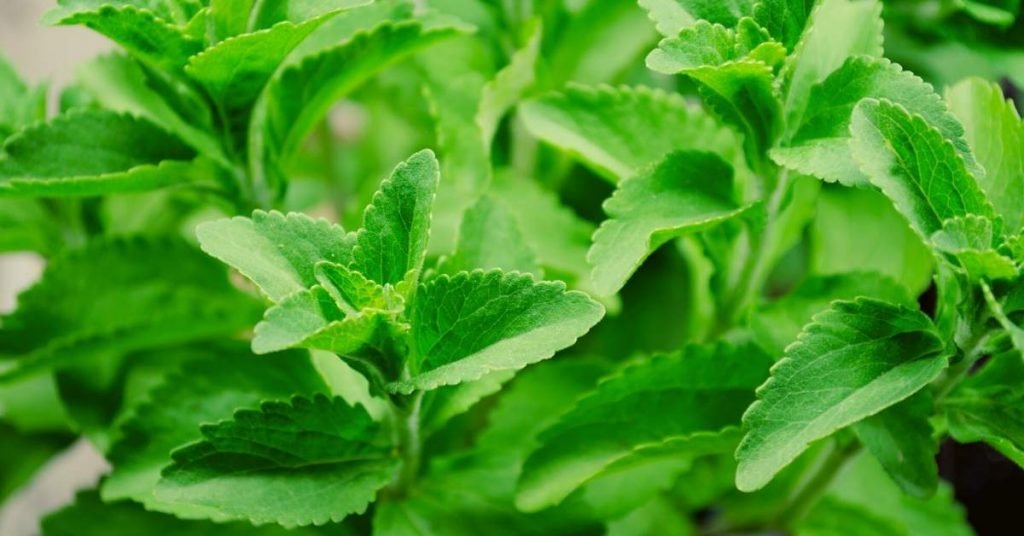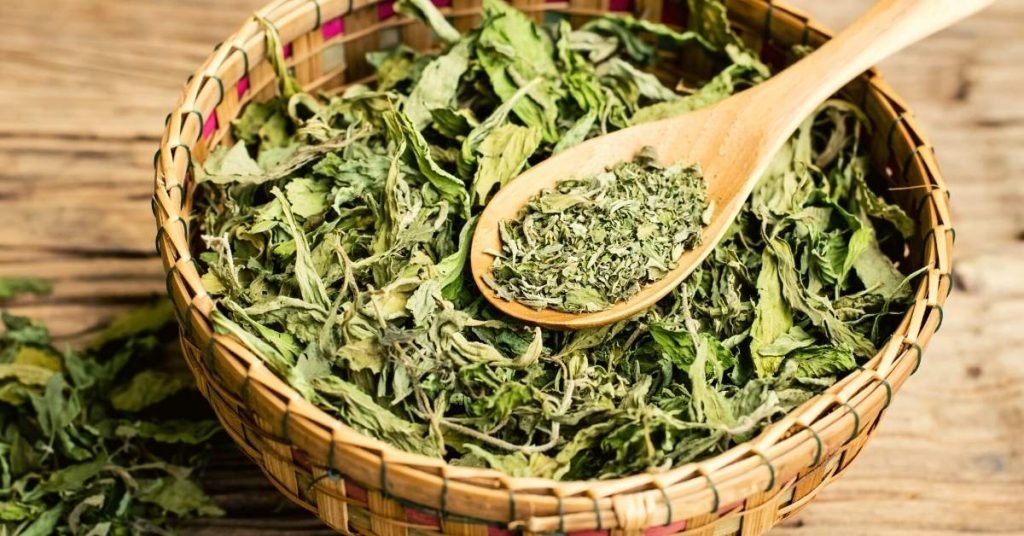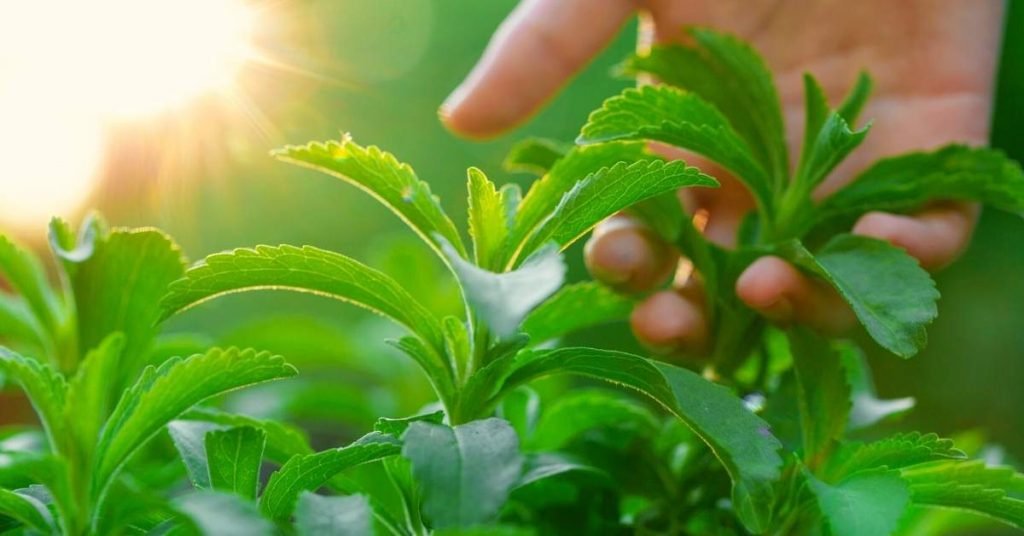In addition to being a very easily cultivated plant, stevia is a vegetable with many medicinal properties, since taking it frequently helps to optimal health.
Thanks to its many properties, this plant provides benefits for the body such as regulating diabetes, controlling blood pressure, and improving circulation, among many other positive effects for our health.

Besides the fact that it is a plant that looks great in the garden and it is excellent to have on hand to take and benefit from its properties, it is considered an extraordinary herb to have with others in the same soil since it helps others to be healthier and grow stronger.
Do you want to know more about the great power of this plant? Then, keep reading this article in which we are going to explain what are the medicinal properties of stevia and all its uses.
Origin and History of Stevia
The first thing to know is that it is not a single species, since the term stevia refers to a genus belonging to the Asteraceae family, which includes 478 described species and 181 accepted to date. These plants are native to South and Central America, especially in tropical and subtropical regions.
According to experts, this plant was consumed as a sweetener by the people of South America 2000 years ago. In fact, in those times it was known in Guarani as “sweet grass”. In the Guarani language, stevia is written ka’a he’ẽ, a word composed of the words ka’a (herb) and he’ẽ (sweet) which, in Spanish, is written as ca-á je-é or caá jeé. Nowadays it is still mostly used as a sweetener, although the medicinal properties of stevia are gradually becoming more widely known.

This herb was first studied by the Spanish physician and botanist Pedro Jaime Esteve. His second surname served to name the plant with the Latinized term stevia. It is now known that this plant has a sweetening capacity between 100 and 300 times more than sugar, the main component of common sugar. In 1899 the Swiss botanist Moisés Santiago de Bertoni first scientifically documented stevia in Paraguay and it was he who introduced stevia to the West.
The scientific name given was Eupatorium rebaudianum, although later in 1905 it was changed to Stevia rebaudiana Bertoni. It was Bertoni’s daughter and son-in-law who began the domestication of stevia cultivation in 1964. On the other hand, it was Ovidio Rebaudi, a Paraguayan chemist, who made the first chemical analysis of this plant in 1900. It was Rebaudi who discovered the sweetening glycosides stevioside and rebaudioside.
Medicinal Properties of Stevia
Ideal for diabetics
Stevia is used as a sugar substitute, as it is considered an ideal sweetener for diabetics because it is a natural product that does not contain sucrose in its composition, which makes it much sweeter than sugar and is not harmful to people with high blood sugar problems, such as diabetics.

These facts, make it a very healthy natural sugar substitute, and it must be taken into account that, although it is much sweeter than sugar, it does not affect diabetes as it does this since this problem is not due to its amount of sweetness but to its composition. Therefore, this plant is a way to take care of diabetes without stopping enjoying sweet things.
Stevia in slimming diets
It is healthy to include this natural sweetener in moderation in weight loss diets since it is an herb that is characterized by its low-calorie content and, thanks to its sweetness, it will help us reduce anxiety and cravings for sweets that often assail us when we follow weight loss diets. In addition to being the ideal sugar substitute, it is also characterized by beneficial properties that help fat absorption.
Regulates cholesterol

Due to its ability to help in the absorption of fats, stevia is a very effective natural product to combat cholesterol problems. Stevia is considered a natural regulator of cholesterol and triglycerides, so it will help us to treat cholesterol by balancing its levels but, by itself, it will not eliminate bad cholesterol.
Medicinal properties of stevia against infections
Stevia is used in traditional medicine to fight bacteria and fungi due to its antibiotic properties. Specifically, according to traditional medicine, stevia has a high success rate against bacterial conditions of the oral mucous membranes and in fungal conditions in the genital organs of women, so it is commonly used to cure vaginal candidiasis.
Other medicinal properties of stevia and how to take it
Growing stevia at home can be of great help for your daily life, as you will always have this plant at hand to help relieve fatigue, facilitate digestion and treat skin blemishes and pimples, and also promote a sense of well-being. As you have already seen, consuming this natural sweetener is completely beneficial for our bodies.
For this reason, we recommend that you chew it, make it into infusions or learn how to dry the stevia leaves and make it into powder, or buy it already in this format, to be able to add it to your dishes and thus sweeten them: cereals, cookies, soft drinks, infusions, etc.

Although it does not have a strong flavor, its taste and sensation are longer lasting than that of sugar, since it is composed of glucose and rebaudioside, elements that give it sweetness in a natural way.
It is advisable to take it in small doses since the extract of this plant contains up to 300 times more sweetness than sugar. Remember that one cup of sugar is equivalent to only one or two teaspoons of the powder of this natural sweetener.
Contraindications of stevia
It is also good to know what are the contraindications of stevia to make sure that it does not affect you in any negative way if you decide to consume it:
- Diabetics, especially type 1, who are already being treated to reduce and regulate blood sugar since this plant being hypoglycemic can cause the effect of lowering blood sugar to be excessive.
- Hypotensive people, since there are studies that indicate that this plant has components that can reduce blood pressure, worsening the situation of these patients.
- People with allergies to any of the components of this plant.
- In pregnancy and lactation, its consumption is not recommended because there have been no conclusive studies on its effects in these cases.
- Anyway, it is best to discuss it with our regular doctor as he knows our health status and all the possible treatments we follow, and how this plant can interact with them in our case.
If you’re looking for a special and unique flavor, check out our extraordinary selection of teas at Hummingbird Tearoom. Add any medicinal herb to one of our organic teas elaborated for your enjoyment and health.
MEDICAL DISCLAIMER
Itsnevernotteatime.com cannot and does not contain medical/health advice. The medical/health information is provided for general and educational purposes only and is not a substitute for professional advice.




